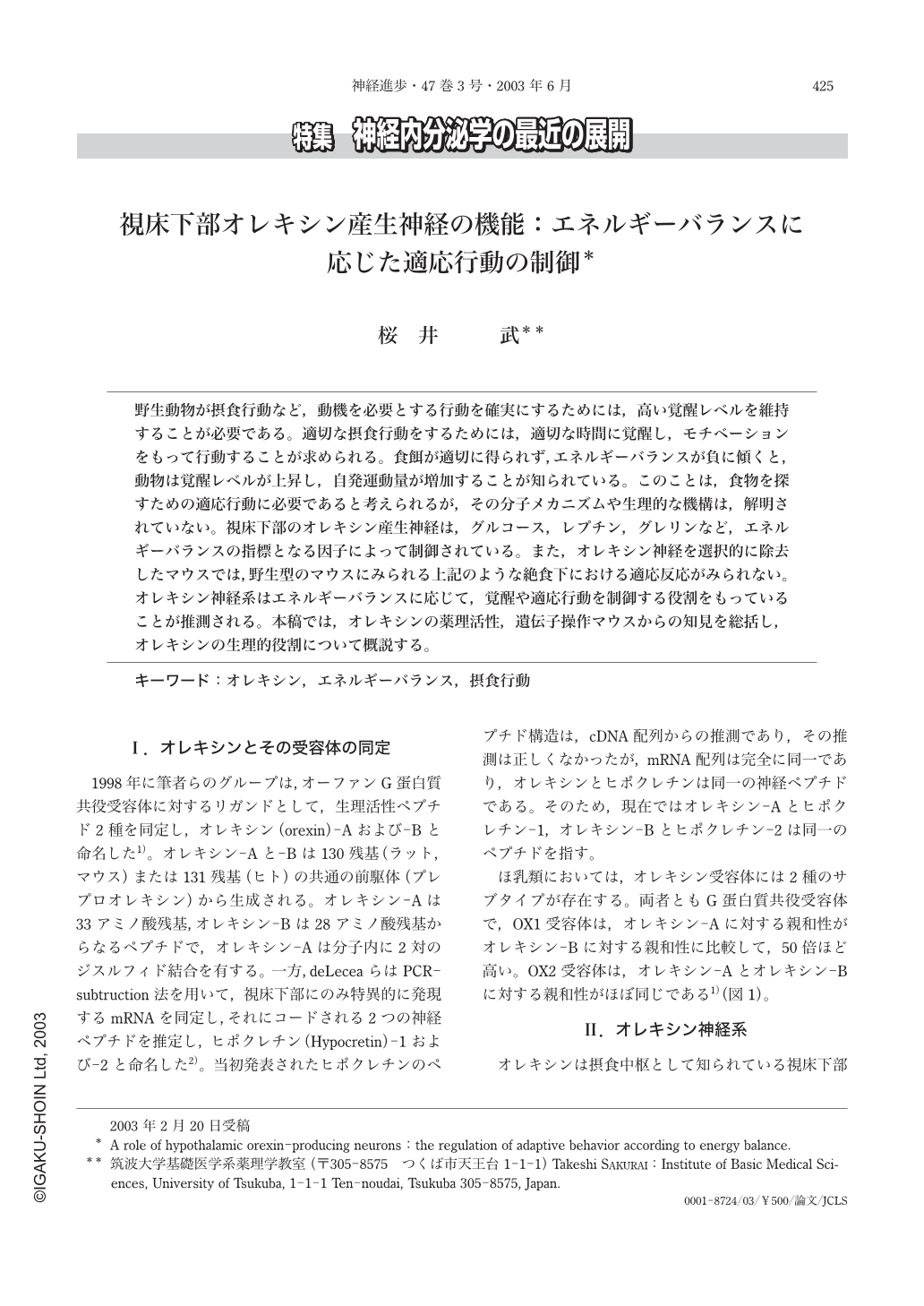Japanese
English
- 有料閲覧
- Abstract 文献概要
- 1ページ目 Look Inside
野生動物が摂食行動など,動機を必要とする行動を確実にするためには,高い覚醒レベルを維持することが必要である。適切な摂食行動をするためには,適切な時間に覚醒し,モチベーションをもって行動することが求められる。食餌が適切に得られず,エネルギーバランスが負に傾くと,動物は覚醒レベルが上昇し,自発運動量が増加することが知られている。このことは,食物を探すための適応行動に必要であると考えられるが,その分子メカニズムや生理的な機構は,解明されていない。視床下部のオレキシン産生神経は,グルコース,レプチン,グレリンなど,エネルギーバランスの指標となる因子によって制御されている。また,オレキシン神経を選択的に除去したマウスでは,野生型のマウスにみられる上記のような絶食下における適応反応がみられない。オレキシン神経系はエネルギーバランスに応じて,覚醒や適応行動を制御する役割をもっていることが推測される。本稿では,オレキシンの薬理活性,遺伝子操作マウスからの知見を総括し,オレキシンの生理的役割について概説する。
Mammals respond to declining food availability by becoming more wakeful and active, yet the central neural pathways regulating arousal and instinctual motor programs(such as food seeking)according to homeostatic need are not well understood. We found that hypothalamic neurons containing the orexin neuropeptides monitor indicators of energy balance, and mediate adaptive augmentation of arousal in response to fasting. Activity of isolated orexin neurons is inhibited by glucose and leptin, and stimulated by ghrelin. Transgenic mice, in which orexin neurons are genetically ablated, fail to respond during fasting with increased wakefulness and locomotor activity. These findings indicate that orexin neurons provide a critical link between peripheral energy balance and behavioral arousal triggered by fasting.

Copyright © 2003, Igaku-Shoin Ltd. All rights reserved.


